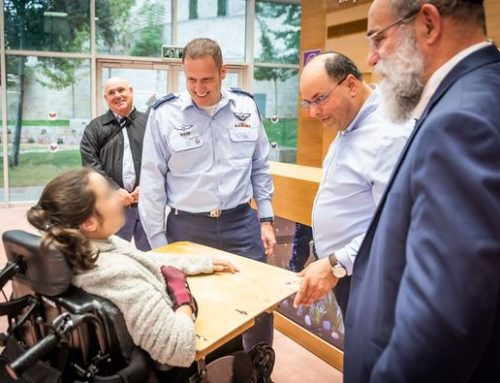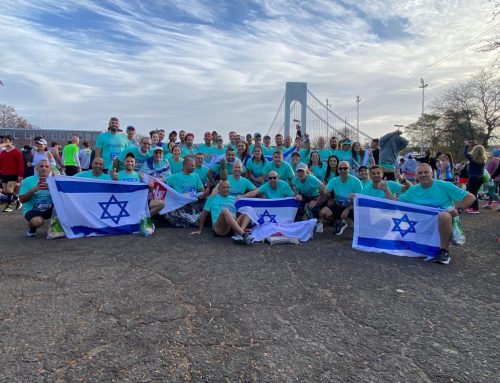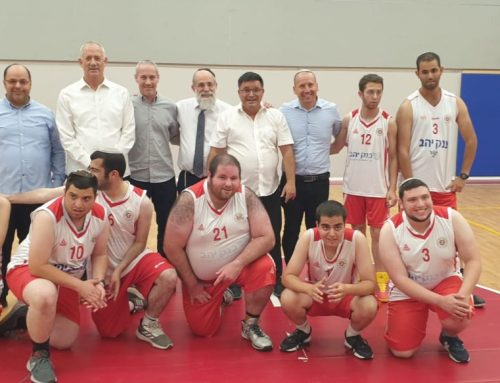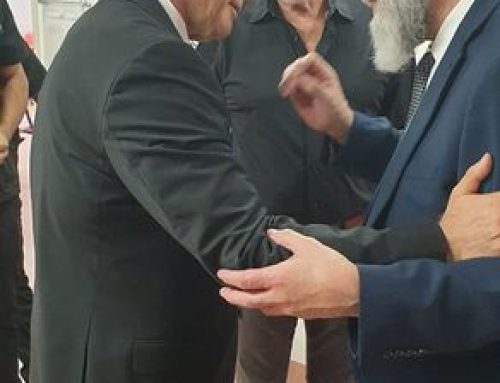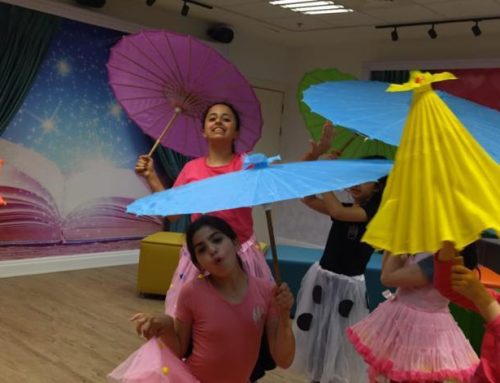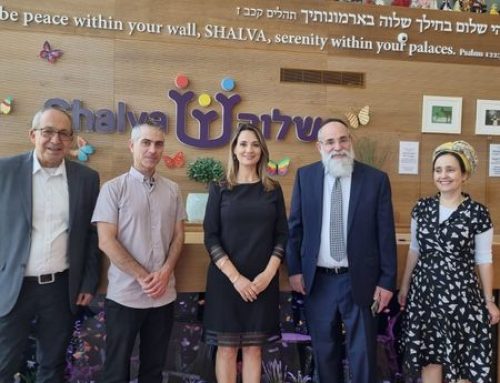Young Adults with Disabilities Prepared a Meal for Holocaust Survivors
Translated and excerpted from a Ynet article by Inbar Tvizer May 1, 2019
A group of students of culinary arts, who have disabilities, hosted some thirty Holocaust survivors at a dinner that they prepared, and heard their testimonies. “We are accustomed to receiving from the community, and now we decided to give back.”
This week, in commemoration of Holocaust Remembrance Day, an unusual meeting took place at Shalva in Jerusalem. A group of young people with physical and cognitive disabilities, who are studying in a cooking course, hosted approximately thirty Holocaust survivors for dinner, which they prepared themselves. In the course of the evening, the young people heard the survivors’ testimonies and stories of bravery.
“Our group are accustomed to receiving from the community, and this time we decided to give back,” explained Malachi Badani, director of the vocational training department of Shalva, of which these students are apart. The idea for the event originated with them. They suggested contributing by means of the meal. They are responsible for all phases, from the cooking to the hosting.” He added that the young people were very excited. “They understand the significance, and it was important to them that everything should go well, to the last detail.”
One of the course students, Ortal Karp, 23 years old with Sotos syndrome, said “It’s important for me to introduce myself to these survivors as someone different. They endured experiences and I feel a need to thank them. They underwent great suffering, and we hear many stories about them. My grandfather was also in the Holocaust, he was in a ghetto. They remind me of my grandparents, of blessed memory, who are now watching me from above.”
Another young participant in the initiative, Noam Greenzweig, added: “We prepared and served a meal for the Holocaust survivors; they are our important guests. They deserve it. We will continue to appreciate them. Cooking for them makes me happy and feel good.”
“There is a challenge in running a kitchen like this,” says Yuval Attia, chief chef in the “Ta’amim” cooking school. “In a regular kitchen, you give instructions, give them some guidelines and everyone is off to work. Here, we work closely with them, hand in hand, and train them. For us, it seems as if preparing schnitzel is the simplest thing in the world. But for this wonderful group, it’s a slightly longer process, that demands more work and more practice. But in the end, when they see that they’ve succeeded, it’s the most rewarding thing there is.”
Attia revealed that there were some reservations on the part of the staff before the event, which they prepared for at great length. “We planned it to the last detail, for example, which cutlery we would serve them with, which utensils. We prepared a beautiful presentation, with nice dishes and napkins; we set the table. There is an atmosphere of a special dinner.”
Pini Schreiber, a survivor who was invited to the dinner, told “As part of the pogroms of WW II in 1939, they burnt down my grandparents’ apartment in Romania, and we had to flee empty-handed from our home. We were banished to a ghetto, and from there taken in cattle cars to a labor camp, where I spent most of the war. I went through many hardships, and my victory was making Aliyah to Israel.” Schreiber noted that he was very moved by the initiative. “I see the connection between the people with disabilities and us – we went through a difficult period, and some of us remain scarred, with problems that afflict us all our lives. The connection between us and this magnificent organization is very nice, in my eyes.”
Esther Kaufman, another survivor who participated in the dinner, said, “It’s very moving. We can see that they did it all from the heart. I got to know Shalva from the competition for the Eurovision on television, and was a very pleasant surprise for us. We are very excited by this center that they have built.”

